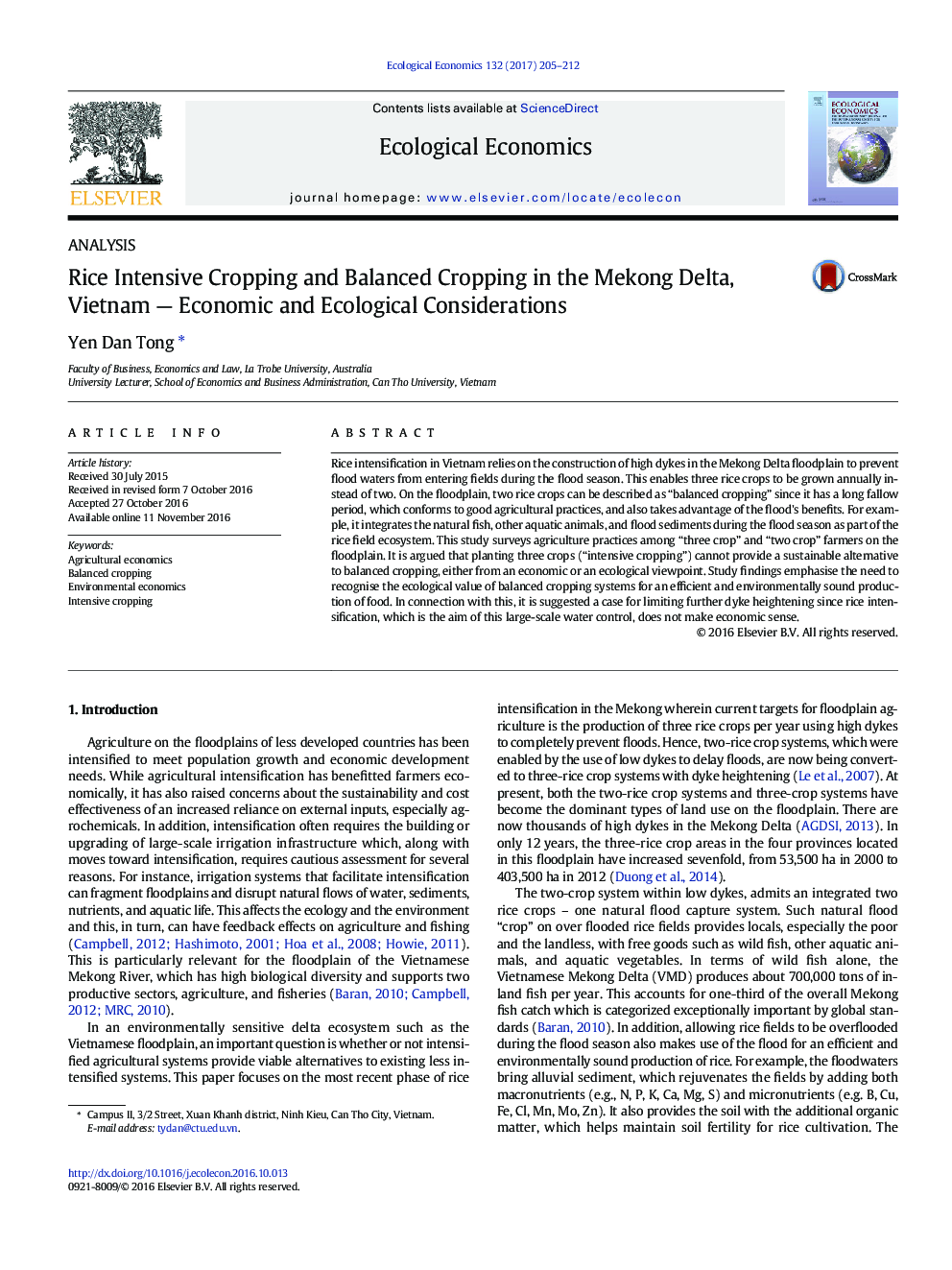| Article ID | Journal | Published Year | Pages | File Type |
|---|---|---|---|---|
| 5048831 | Ecological Economics | 2017 | 8 Pages |
Rice intensification in Vietnam relies on the construction of high dykes in the Mekong Delta floodplain to prevent flood waters from entering fields during the flood season. This enables three rice crops to be grown annually instead of two. On the floodplain, two rice crops can be described as “balanced cropping” since it has a long fallow period, which conforms to good agricultural practices, and also takes advantage of the flood's benefits. For example, it integrates the natural fish, other aquatic animals, and flood sediments during the flood season as part of the rice field ecosystem. This study surveys agriculture practices among “three crop” and “two crop” farmers on the floodplain. It is argued that planting three crops (“intensive cropping”) cannot provide a sustainable alternative to balanced cropping, either from an economic or an ecological viewpoint. Study findings emphasise the need to recognise the ecological value of balanced cropping systems for an efficient and environmentally sound production of food. In connection with this, it is suggested a case for limiting further dyke heightening since rice intensification, which is the aim of this large-scale water control, does not make economic sense.
